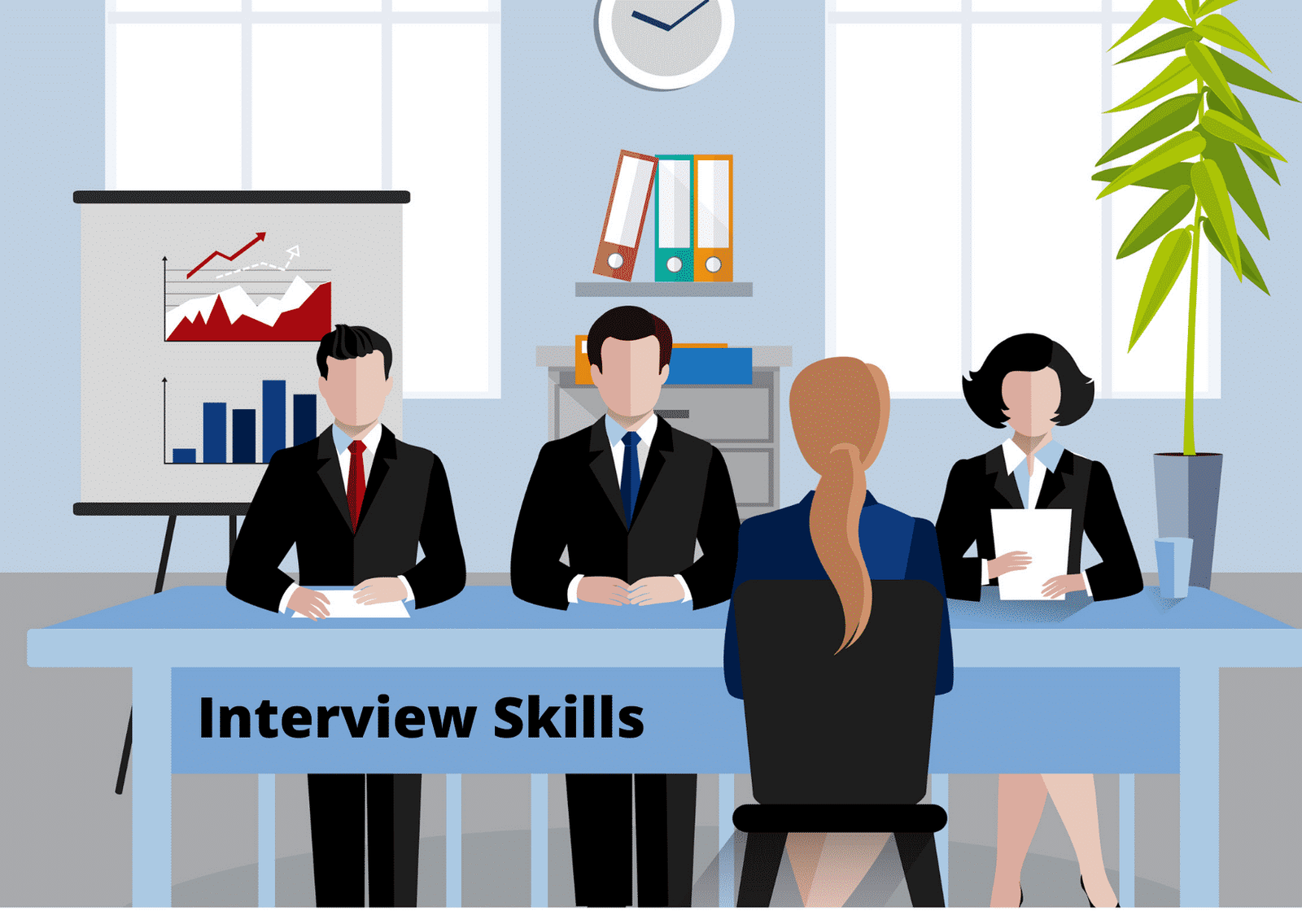
Interview skills are a set of abilities that allow a job seeker to effectively communicate their qualifications and suitability for a job during the interview process. Some important interview skills include: Research: Before the interview, research the company and the position you're applying for. This will show the interviewer that you're interested and invested in the company. Communication: Effective communication is key to a successful interview. Be clear and concise when answering questions, and make sure to listen to the interviewer's questions carefully. Body Language: Your body language can convey confidence and enthusiasm, so make sure to sit up straight, make eye contact, and smile. Preparation: Preparation is key to a successful interview. Make sure to have a copy of your resume and any other relevant documents with you, and prepare answers to common interview questions. Follow-Up: After the interview, send a thank-you email or note to the interviewer, thanking them for their time and reiterating your interest in the position. This can help you stand out from other candidates and keep you top of mind for the hiring manager.